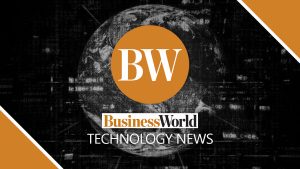
Ramping up investments to boost digital economy
THE PHILIPPINES needs to tighten its cybersecurity laws and increase investments in infrastructure to strengthen the digital sector’s contribution to the economy, analysts said.
“Factors for the slower growth pace [of the digital economy] include the lack of access to affordable or reliable internet, low digital literacy, and cybersecurity concerns,” Security Bank Corp. Chief Economist Robert Dan J. Roces said in a Viber message.
“Low-hanging fruits include increasing investments in digital infrastructure, promoting digital literacy, encouraging tech adoption by more businesses, and establishing a favorable regulatory environment that can boost the digital economy’s GDP (gross domestic product) share,” Mr. Roces added.
The digital economy accounted for 8.4% to Philippine GDP last year, a tad lower than its 8.6% contribution in 2022, government data released last week showed.
The digital economy runs under transactions through digital-enabling infrastructure, e-commerce, digital media or content, and government digital services, the Philippine Statistics Authority said.
Cybersecurity remains a key issue in the digital economy’s growth, John Paolo R. Rivera, president and chief economist of Oikonomia Advisory & Research, Inc., said in a Viber message, adding that laws like the SIM Registration Act and the Data Privacy Act have failed to protect consumers against scams.
“[The] slowdown in the digital economy may also stem from the lack of confidence of consumers for its facility as it has been used as a platform for scrupulous and fraudulent activities. This has resulted in slower demand,” he said. The government must “penalize to the full extent of law those who will use the digital economy for fraud, regulate the digital economy through more stringent consumer protection,” Mr. Rivera added.
The Philippines saw the highest number of detected and blocked financial phishing attempts last year in Southeast Asia, global cybersecurity firm Kaspersky earlier said in a report.
A weaker peso increased importation costs and slowed down investments and growth in the digital economy last year, Rizal Commercial Banking Corp. Chief Economist Michael L. Ricafort said.
Elevated inflation and interest rates also affected the sector, he added.
Despite this, the digital economy is expected “to grow with the new normal with more online or digital transactions even for the coming years… given the greater convenience, with more choices for consumers at lower prices and bigger market locally and internationally for sellers,” Mr. Ricafort said.
The Philippines’ digital economy is projected to be valued at $150 billion by 2030, according to a report by Google, Temasek Holdings, and Bain & Company. — B.M.D. Cruz



